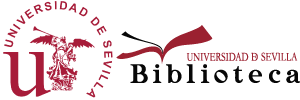Análisis crítico de la antropología estética de Menke
Critical Analysis of Menke's Aesthetic Anthropology
Abstract
Aesthetic anthropology is the name that Christoph Menke has given to the project of displaying the paradoxical unity of strength and faculty that, in his opinion, occurs in the human being. This paper will analyze this proposal by confronting it with the position of one of his most recent critics, Georg W. Bertram. It will firstly take into account the relevance of thinking of the genealogy of the modern subject as an opposition between two aesthetics, that of force (Herder) and that of faculty (Descartes, Leibniz, Baumgarten and Kant). Secondly, the two pillars of aesthetic anthropology will be studied: the argument of pleasure and the argument that defends, against modern philosophy, the genealogy of the subject based on the opposition between force and discipline (in critical discussion with Heidegger, Ritter and Foucault). Lastly this paper will consider the arguments of the opposite position, represented by Bertram, who taking sides with the aesthetics of the faculty will defend the complementarity and dialectical unity between force and faculty, which in his opinion is based above all on the unacceptable ethical consequence of Menke’s thought, namely: the partition into the good.
Downloads
References
MENKE, Christoph, Kraft. Ein Grundbegriff ästhetischer Antropologie, Suhrkamp, Fráncfort del Meno, 2008. Versión española: Fuerza. Un concepto fundamental de la antropología estética, traducción de Maximiliano Gonnet, Comares, Granada, 2019.
MENKE, Christoph, Die Kraft der Kunst, Suhrkamp, Fráncfort del Meno, 2013. Versión española: La fuerza del arte, traducción de Niklas Bornhauser Neuber, Ediciones Materiales Pesados, Santiago de Chile, 2017.
MENKE, Christoph, Die Souveränität der Kunst. Ästhetische Erfahrung nach Adorno und Derrida, Suhrkamp, Fráncfort del Meno, 1991. Versión española: La soberanía del arte. La experiencia estética según Adorno y Derrida, traducción de Ricardo Sánchez Ortiz de Urbina, Antonio Machado Libros, Madrid, 1997.
ZÚÑIGA, José F., “El paradigma de la autonomía del arte”, en: ZÚÑIGA, José F. (ed.), Autonomía y valor del arte, Comares, Granada, 2017, pp. 11-17
ZÚÑIGA, José F., “Arte y autonomía”, Estudios Filosóficos, vol. LXVII (2018), núm. 194, pp. 221-234
ZÚÑIGA, José F., “Introducción: estética y hermenéutica”, en: id., Estética y hermenéutica. Fundamentos de filosofía del arte, Comares, Granada, 2019, pp. 5-8
HABERMAS, Jürgen, El discurso filosófico de la Modernidad, Madrid, Taurus, 1991.
DELEUZE, Gilles, Nietzsche y la filosofía, traducción de Carmen Artal, Barcelona, Anagrama, 1994, pp. 7-10.
NIETZSCHE, Friedrich, El nacimiento de la tragedia. O Grecia y el pesimismo, traducción de Andrés Sánchez Pascual, Alianza Editorial, Madrid, 1984, p. 54.
NIETZSCHE, Friedrich, Fragmentos póstumos I (1869-1874), traducción de Luis E. de Santiago Guervós, Tecnos, Madrid, 2010, p. 126.
HEIDEGGER, Martin, Nietzsche, vol. I, traducción de Juan Luis Vermal, Destino, Barcelona, 2000, p. 80.
BERTRAM, Georg W., El arte como praxis humana. Una estética, traducción de José F. Zúñiga García, Comares, Granada, 2016, pp. 14-31.
MENKE, Christoph, “Espíritu y vida. Para una crítica genealógica de la Fenomenología del espíritu”, en LEMM, Vanessa, ORMEÑO KARZULOVIC, Juan (eds.), Hegel, pensador de la actualidad. Ensayos sobre la Fenomenología del espíritu y otros textos, Ediciones Universidad Diego Portales, Santiago de Chile, 2010, pp. 431-472
BERTRAM, Georg W., Hegel´s “Phanomenologie des Geistes”. Ein systematischer Kommentar, Reclam, Stuttgart, 2017.
NIETZSCHE, Friedrich, La ciencia jovial, traducción de José Jara, Monte Ávila, Caracas, 1999, p. 35.
NIETZSCHE, Friedrich, Crepúsculo de los ídolos. O cómo se filosofa con el martillo, traducción de Andrés Sánchez Pascual, Alianza Editorial, Madrid, 2007, p. 96.
GARCÍA DÜTTMANNN, Alexander, Kunstende. Drei ästhetische Studien, Surhkamp, Fráncfort del Meno, 2000, p. 25
NIETZSCHE, Friedrich, Fragmentos póstumos II (1875-1882), traducción de Manuel Barrios y Jaime Aspiunza, Tecnos, Madrid, p. 496.
TUGENDHAT, Ernst, Lecciones de ética, traducción de Luis Román Rabanaque, Gedisa, Barcelona, 2001, p. 58.
HEGEL, Georg W.F., Lecciones sobre la estética, traducción de Alfredo Brotons Muñoz, Akal, Madrid, 2007, pp. 441 y ss.
MARÍ, Antoni, El entusiasmo y la quietud, Tusquets Editores, 1998, p. 123.































